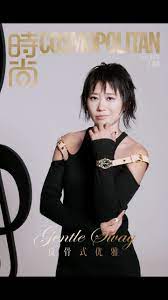The big question for Yuja Wang
NewsLindsay McMurdo, a critic at the Edinburgh Festival, hits the elusive nail bang on the head:
And therein lies both a small part of the appeal and a large part of the problem, at least to this reviewer. At 37 (way too old now to be riding the prodigy bandwagon) Wang’s complete technical mastery is beyond question, and her market positioning unassailable. However, her motivation seems unclear. What does she actually want to do with all this talent? To dazzle and impress? Or to genuinely move and enlighten? On the evidence of Monday’s performance, it’s the former. But there was plenty of evidence that if she just pulled back slightly and dared to reveal a bit more of herself, she could achieve the latter. And that would be a wonderful thing to behold.






Comments